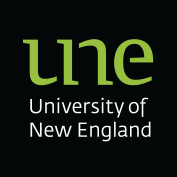This post is part of our series about the Future of Work, culminating in next month’s event in Tamworth on the 13 September (more here)– we’ll be talking to students, researchers and teachers, graduates and alumni over the next month. Join us via Facebook, Twitter, Instagram and LinkedIn.
 Successful workplaces of the future will have to be diverse to survive. We’re already talking about innovation, agility and entrepreneurship – maybe these are buzzwords that are dangerously close to buzzed out, but reading between the lines it’s clear that workplaces that embrace change are going to have the best chance at success.
Successful workplaces of the future will have to be diverse to survive. We’re already talking about innovation, agility and entrepreneurship – maybe these are buzzwords that are dangerously close to buzzed out, but reading between the lines it’s clear that workplaces that embrace change are going to have the best chance at success.
The part to wrap our heads around is exactly how to ‘embrace’ this change. Is it an all-encompassing bear hug style embrace? Is it a polite handshake? Is it about leaving space open in your diary, or is it about asking for an invitation to the party?
The short answer is D: All of the above, but the long answer is that there is a diverse list of ways to grow diversity! What organisations need to learn and practice is grounded in more than just financial success; it’s grounded in a re-definition of succeeding. We need to learn more about how to have ideas, and what to do with them once we’ve had them. We need to have bad ideas; we need to share our failures widely, openly and clearly. There’s an opportunity to implement user-centred design thinking in our startup businesses or SMEs, but there are powerful parts of that process we can draw on in larger workplaces, government and policy making and in our education and training.
To be truly committed to diversity in the workforce, we need to be committed to ensuring we hear everybody’s voices. We need to invite feedback on our ideas, and to realise that feedback is part of a testing phase.
We need to truly, genuinely want that feedback knowing it will improve our idea; that each time we adjust after feedback we get closer to the right answer to the question (accepting that the ‘question’ is bound to change). Most important is the understanding that to consider a problem from all angles, we need to be asking a range of people who are different to us.
Diversity in workplaces will look different on everybody. Diversity in startup businesses might call for a founder with a grassroots marketing background and no tertiary education, coupled with a university-educated coding expert, establishing a company catering to an underserviced segment of the population. A family-run company might include in-laws who are first-generation Australians as part of their decision-making team. A not for profit might invite representation from the community members they’re seeking to support into the boardroom to shape their vision and mission; a large organization might involve staff with specific accessibility or cultural requirements as they plan to build new offices, implement new software, draft new policy documents.
Diversity in a workplace should be built on an understanding that when our workplaces reflect the world we live in, our businesses are better equipped to innovate.
At this point in time we need to be diligent about pushing for a diverse workforce; to be actively seeking a balance of men, women and others, cultural backgrounds, sexualities, physical abilities and ages. We need to be seeking broad skill-sets, and re-thinking assumptions about education and training. Diverse workplaces need to be built thoughtfully.
Successful workplaces of the future? They’ll be thriving under leadership grown in this rich, diverse work environment. Our future leaders will make decisions that include their workforce in both development and execution; they’ll steer and be steered by the range of talent in their teams that has been fostered by a workplace that sees the value in different approaches and ideas. The future of work looks different to today’s workplace, but in order to arrive at this exciting future place, we need to start today!
 Helen Taylor is an alumna of UNE, finishing a Master of Arts Management in 2017.
Helen Taylor is an alumna of UNE, finishing a Master of Arts Management in 2017.
For work so far, she’s sold chocolates at Darrel Lea, managed a not for profit and worked in Human Resources and communications roles. Helen is currently enrolled in a PhD, taking focus on diversity in the startup industry – what it looks like, how it works and where it’s headed.
Connect with Helen via LinkedIn.



Recent Comments